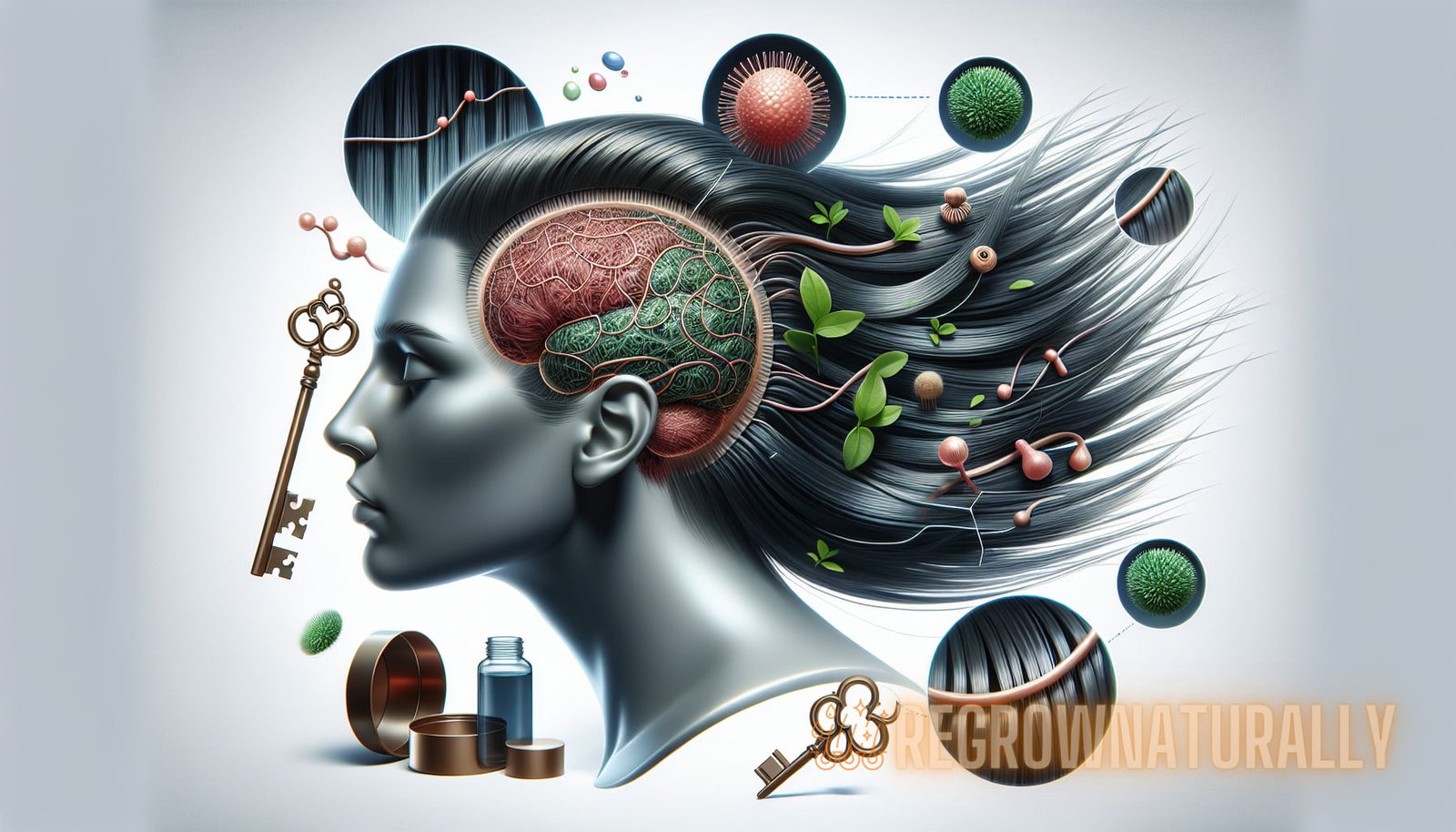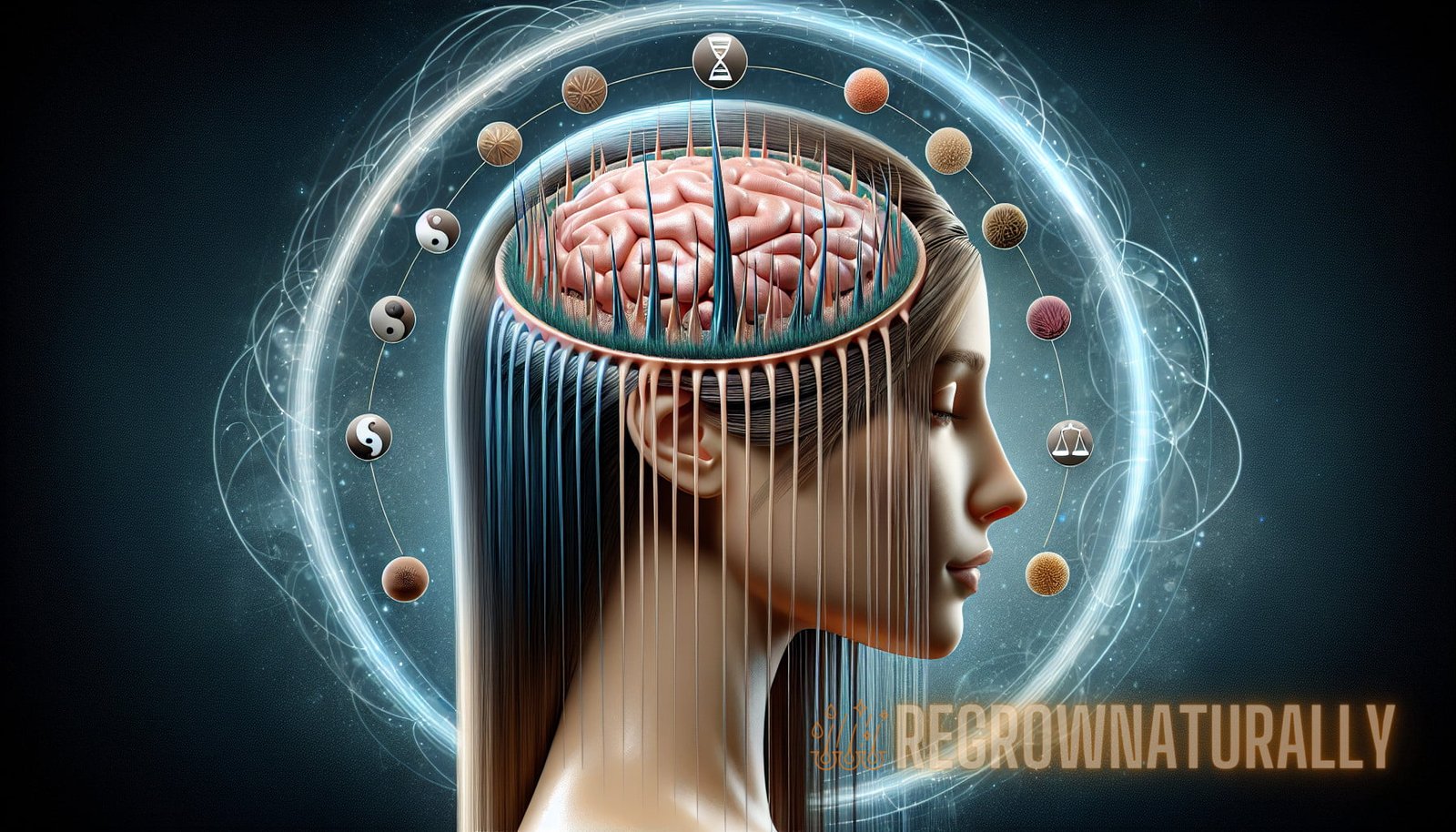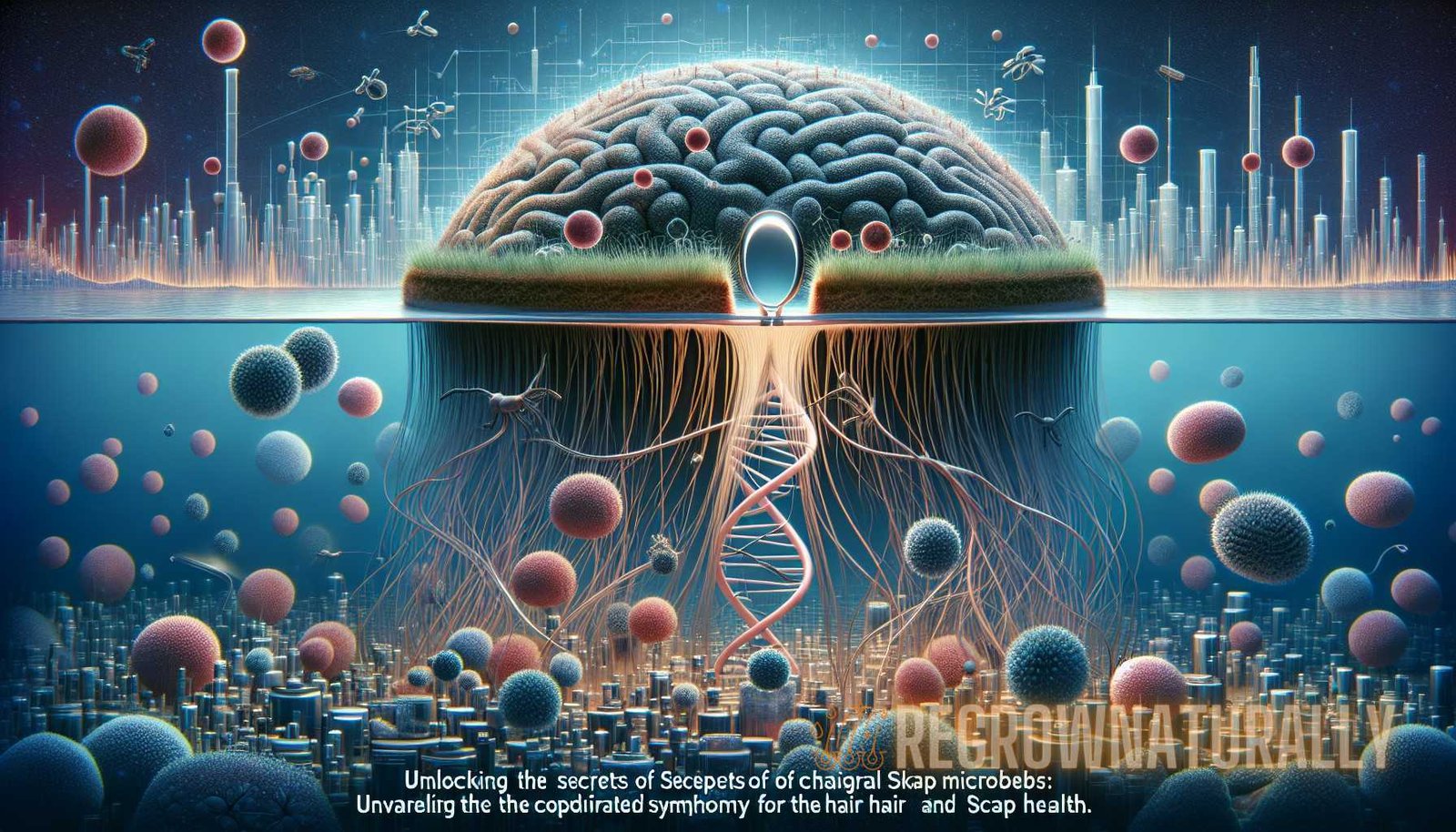Introduction
When it comes to hair care, we often focus on the ends, the length, and the style. However, the key to achieving healthy and luscious hair starts from the root – the scalp. The scalp serves as the foundation for strong hair strands, and maintaining its health is essential for promoting hair growth and vitality. In this article, we will explore the vital connection between scalp health and hair nourishment, understanding the intricate balance required for beautiful and resilient hair.
The Scalp: The Foundation of Healthy Hair
The scalp is the skin that covers the top of our heads, and it plays a crucial role in the health of our hair. A healthy scalp provides a thriving environment for hair follicles, allowing them to produce strong and healthy hair strands. Conversely, an unhealthy scalp can lead to hair thinning, hair loss, and other common scalp conditions.
Here are some key functions of the scalp:
- Sebum production: The sebaceous glands in the scalp produce sebum, an oily substance that moisturizes and nourishes the hair.
- Regulation of pH balance: The scalp maintains a slightly acidic pH, which helps keep the hair cuticles smooth and healthy.
- Blood circulation: The scalp is rich in blood vessels that supply oxygen and nutrients to the hair follicles, vital for their growth and maintenance.
- Removal of waste products: The scalp eliminates metabolic waste products, ensuring optimal functioning of the hair follicles.
These functions of the scalp highlight its importance in promoting hair health and vitality. Therefore, taking care of the scalp should be a fundamental aspect of any hair care routine.
Understanding the Scalp-Hair Connection
Our hair strands are produced by hair follicles embedded in the scalp. These follicles are nourished by a network of blood vessels and have a direct connection to the sebaceous glands. The sebum produced by these glands helps condition and moisturize the hair strands.
In addition, the scalp provides a protective barrier for the hair follicles, shielding them from external factors such as UV radiation, pollution, and temperature changes. A healthy scalp ensures that the hair follicles stay strong and protected, allowing for optimal hair growth.
Moreover, the state of the scalp directly affects the quality of hair growth and the appearance of the hair. When the scalp is healthy, it provides the necessary nutrients and moisture to the hair follicles, resulting in strong, shiny, and vibrant hair. On the other hand, an unhealthy scalp can lead to various scalp conditions that hinder hair growth and compromise the overall hair quality.
Common Scalp Conditions and their Impact on Hair
Several scalp conditions can affect the health of our hair. Let’s take a closer look at some of the common scalp conditions and their impact on hair:
Dandruff
Dandruff is a common scalp condition characterized by flaky skin on the scalp. It can be caused by various factors, including dryness, fungal overgrowth, and sensitivity to hair care products.
How dandruff affects hair:
- Dandruff can lead to itchiness and inflammation of the scalp, potentially causing hair breakage and thinning.
- Excessive scratching of the scalp due to dandruff can damage the hair shafts, leading to hair fall.
- The presence of dandruff flakes on the scalp can make the hair appear dull and unkempt.
If you’re struggling with dandruff, it is important to address the underlying causes and adopt a scalp care routine that includes anti-dandruff treatments and gentle cleansing.
An article available at https://regrownaturally.fun provides helpful tips and remedies for alleviating dandruff and promoting a healthier scalp.
Dry Scalp
A dry scalp occurs when the scalp lacks sufficient moisture and becomes dry, itchy, and flaky. It can be caused by environmental factors, such as cold weather, excessive washing, and the use of harsh hair care products.
How a dry scalp affects hair:
- Dryness in the scalp can lead to brittle hair that is prone to breakage and split ends.
- A dry scalp can disrupt the balance of sebum production, leading to either excessive oiliness or dryness in the hair.
- The itchiness and irritation caused by a dry scalp can result in hair pulling and scratching, which can further damage the hair.
To combat dry scalp, it is important to moisturize the scalp regularly and use gentle, hydrating hair care products. Avoiding excessive heat styling and protecting the hair from harsh weather conditions can also help maintain a healthy scalp.
Scalp Psoriasis
Scalp psoriasis is a chronic autoimmune condition characterized by the rapid buildup of skin cells on the scalp, leading to the formation of thick scales and patches.
How scalp psoriasis affects hair:
- The thick scales and plaques on the scalp can block the hair follicles, inhibiting hair growth.
- Inflammation associated with scalp psoriasis can cause itching and scratching, resulting in hair breakage and thinning.
- The presence of visible scales and red patches can affect the appearance of the hair, leading to self-consciousness and reduced confidence.
Treating scalp psoriasis usually involves a combination of medicated shampoos, topical creams, and lifestyle modifications. Seeking professional medical advice is crucial for managing this condition effectively.
The Importance of Scalp Nourishment for Hair Growth
Scalp nourishment is essential for promoting healthy and vigorous hair growth. When the scalp is well-nourished, it provides the necessary environment for the hair follicles to function optimally and produce strong hair strands.
Here are some key aspects of scalp nourishment:
Proper Nutrition

Proper nutrition plays a vital role in maintaining a healthy scalp and promoting hair growth. A well-balanced diet rich in essential vitamins, minerals, and proteins provides the building blocks necessary for hair follicle growth and health.
Key nutrients for scalp nourishment:
- Omega-3 fatty acids: Found in fatty fish, walnuts, and flaxseeds, omega-3 fatty acids contribute to a healthy scalp by reducing inflammation and improving blood circulation.
- Vitamin E: Vitamin E, found in foods like almonds, sunflower seeds, and spinach, nourishes the scalp by protecting it from oxidative stress and promoting blood flow.
- Biotin: Biotin, also known as vitamin B7, strengthens the hair follicles and enhances scalp health. It can be found in foods like eggs, nuts, and sweet potatoes.
- Zinc: Zinc is crucial for maintaining a healthy scalp and promoting hair growth. It can be obtained from foods such as oysters, pumpkin seeds, and beef.
Incorporating these nutrient-rich foods into your diet can help nourish your scalp and support the health of your hair.
Scalp Massages
Scalp massages help stimulate blood circulation in the scalp, delivering vital nutrients and oxygen to the hair follicles. They also help loosen any buildup of sebum, dead skin cells, and product residue, ensuring a clean and healthy scalp environment.
Here’s how to perform a scalp massage:
- Step 1: Apply a few drops of scalp-friendly oil, such as coconut oil or argan oil, to your fingertips.
- Step 2: Using the pads of your fingers, gently massage your scalp in circular motions, starting from the front and working your way to the back. Apply light pressure, and focus on areas that feel tense or congested.
- Step 3: Continue massaging for 5-10 minutes, ensuring that you cover the entire scalp.
- Step 4: Leave the oil on your scalp for a few hours or overnight, then rinse thoroughly with a gentle shampoo.
Regular scalp massages can help promote hair growth, reduce scalp tension, and improve the overall health of your scalp.
Unlocking Hair Regrowth: Optimal Scalp Care
Unlocking hair regrowth begins with optimal scalp care. By maintaining a healthy scalp environment, you create the ideal conditions for new hair growth and rejuvenation of existing hair follicles.
Here are some key practices for optimal scalp care:
Gentle Cleansing
Regular cleansing of the scalp is essential for removing excess sebum, dead skin cells, and product buildup. However, it is important to choose gentle and scalp-friendly cleansers that do not strip away the natural oils and moisture of the scalp.
When choosing a shampoo:
- Look for sulfate-free formulas, as sulfates can be harsh and drying to the scalp.
- Opt for natural and organic ingredients that soothe and nourish the scalp, such as tea tree oil, aloe vera, and chamomile.
- Consider using clarifying shampoos occasionally to remove any stubborn buildup on the scalp.
Avoid overwashing the hair, as it can strip the scalp of its natural oils, leading to dryness and potential scalp issues.
Regular Exfoliation
Exfoliating the scalp is a crucial step in maintaining a healthy scalp environment. It helps remove dead skin cells, unclog hair follicles, and promote the growth of new, healthy hair.
Here’s a simple DIY scalp exfoliation recipe:
- Step 1: Mix 1 tablespoon of fine sugar with 2 tablespoons of your favorite hair oil (such as coconut oil or jojoba oil).
- Step 2: Apply the mixture to your scalp and gently massage in circular motions for a few minutes.
- Step 3: Rinse thoroughly and follow with a gentle shampoo.
Exfoliating the scalp once or twice a month can help maintain a clean and healthy scalp, promoting optimal hair growth.
Nourishing Hair Masks
Regularly treating your hair and scalp to nourishing masks is an excellent way to provide deep hydration, nutrients, and conditioning benefits. Hair masks specifically designed for scalp nourishment can help strengthen the hair follicles, reduce hair breakage, and improve overall hair health.
An example of a homemade hair mask for scalp nourishment:
- Step 1: Mash half an avocado and mix it with 2 tablespoons of plain yogurt.
- Step 2: Add a tablespoon of honey to the mixture and mix well.
- Step 3: Apply the mask to your scalp and hair, ensuring complete coverage.
- Step 4: Leave the mask on for 30 minutes, then rinse thoroughly with warm water.
Using hair masks once a week can provide intense nourishment to your scalp and hair, enhancing their overall health and vitality.
An article available at https://regrownaturally.fun delves deeper into the key factors and practices for unlocking hair regrowth through optimal scalp care.
In Conclusion
Understanding the vital connection between scalp health and hair nourishment is essential for achieving and maintaining healthy and vibrant hair. By focusing on scalp care as a fundamental aspect of your hair care routine, you can create the ideal environment for hair regrowth, reduce hair loss, and improve the overall health of your hair. Implementing practices such as proper nutrition, scalp massages, gentle cleansing, regular exfoliation, and nourishing hair masks can go a long way in nurturing your scalp and unlocking the full potential of your hair. Remember, a healthy scalp is the foundation for beautiful hair!



